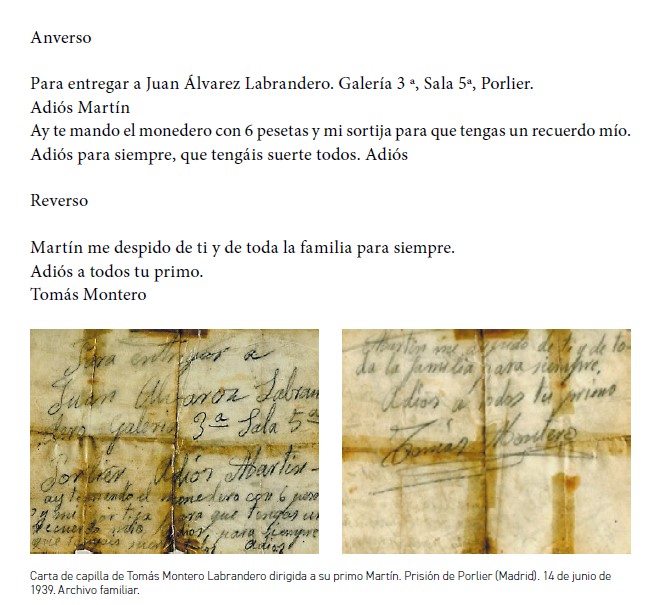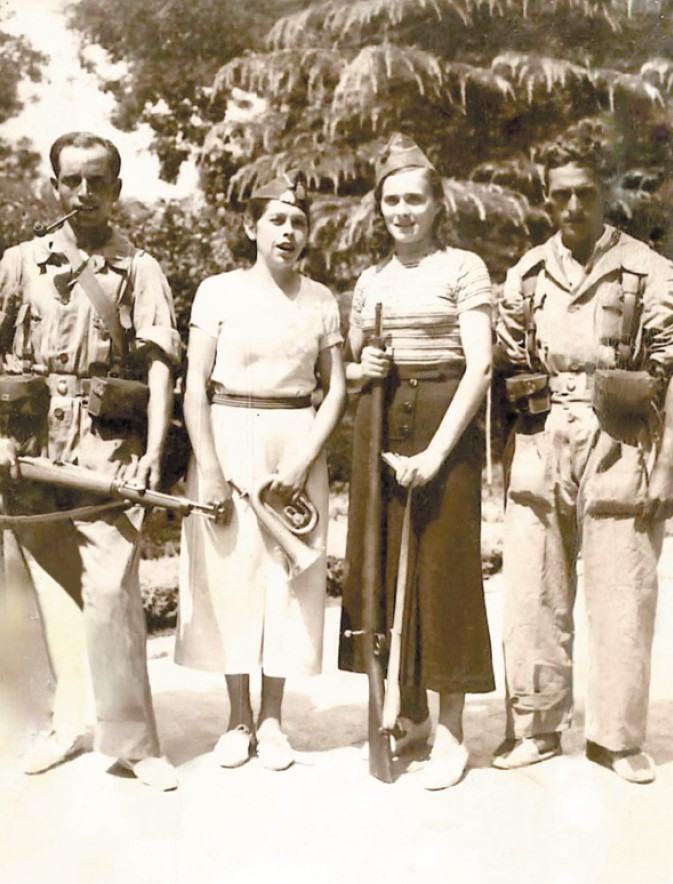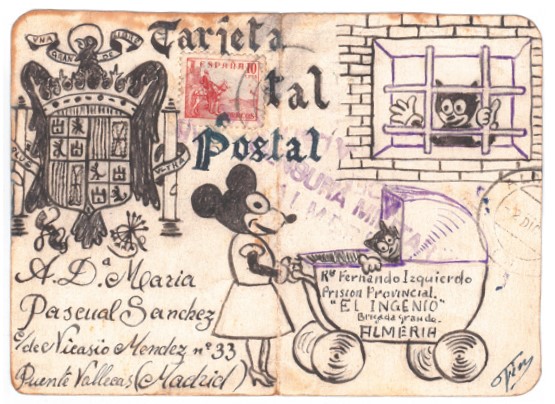Inclusive searches & sources @UvA Romance Languages (17)
Reviewed last month in The Guardian on the occasion of the hardcover release (by editorial L’Encobert), and published open access earlier this year, Las cartas de la memoria is an initiative of the association Memoria y libertad (Memory and freedom), began in 2005 «by relatives of people shot by Franco’s regime in the postwar years, with the purpose of sharing data, gather information, show the results online and contact other family members and relatives of the victims to pursue a just recognition and tribute to the dead» [source].
The volume is edited by Tomás Montero Aparicio, whose grandfather Tomás Montero Labrandero – one of over 2.900 Republicans executed in Madrid between 1939 and 1944 – was shot on June 14, 1939 in the Spanish capital’s Cementerio de la Almudena (earlier Cementerio del Este). To his cousin Martín, Tomás wrote the following few lines on the day of his killing:

Recto: To be delivered to Juan Álvarez Labrandero. Gallery 3 ª, Hall 5ª, Porlier. Farewell Martín. I’m sending you the purse with 6 pesetas and my ring for you to keep as memory of me. Farewell forever, good luck to all of you. Farewell.
Verso: Martín I bid farewell to you and the whole family forever. Farewell to all, your cousin. Tomás Montero
Among the documents and stories collected in the volume, both the postcards sent (after having decorated them) by Fernando Izquierdo Montes (killed on May 19th, 1943) to his wife and son, and the letters written by some women, such as Dionisia Manzanero Salas (shot on August 5th, 1939), help make for a collective portrait and poignant monument to the victims of fascist violence.
Dionisia Manzanero Salas (with rifle) and other members of the Batallón Octubre de la JSU-Juventudes Socialistas Unificadas (Unified Socialist Youth)

N.B. English translations are mine. All pictures are from the book.


